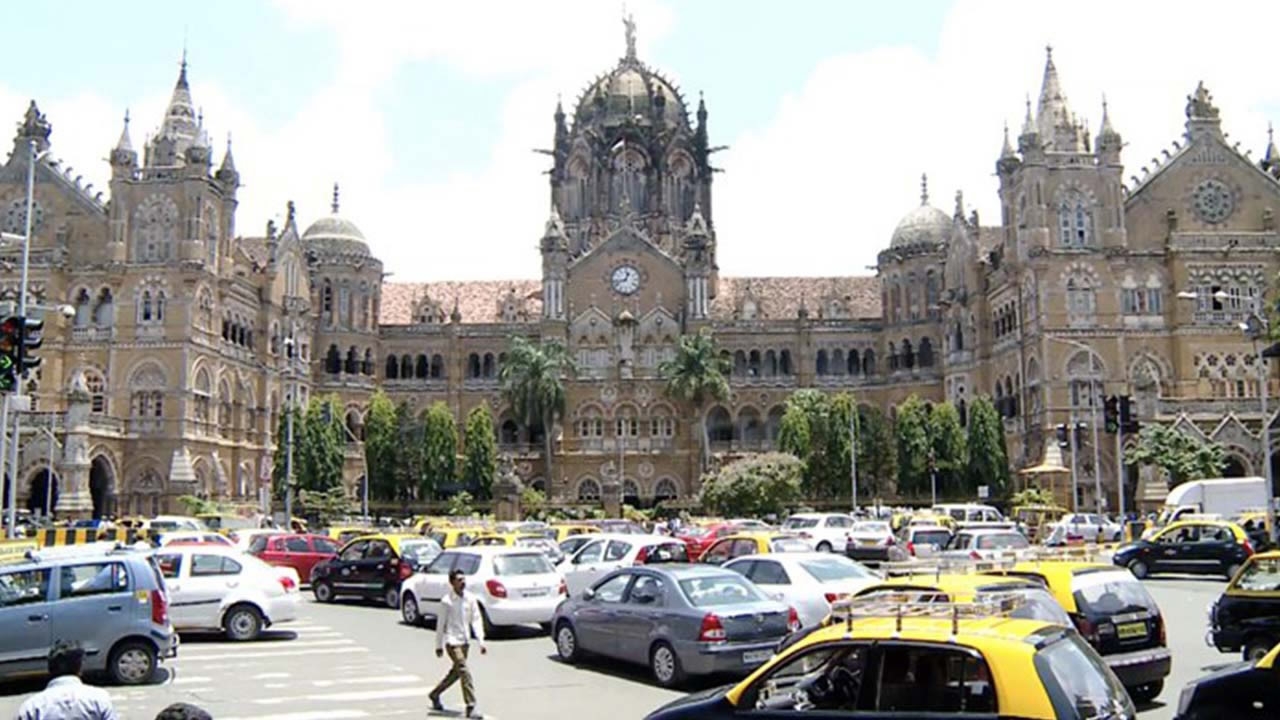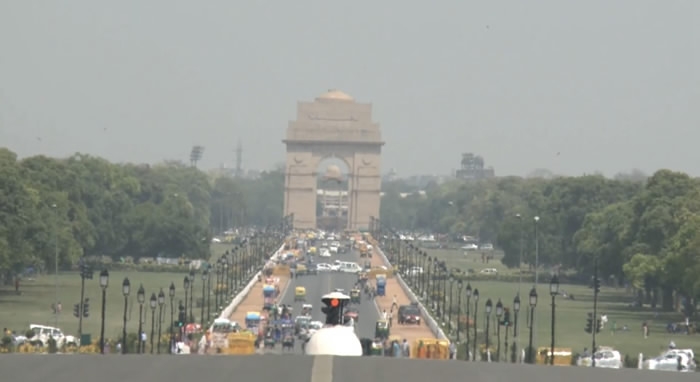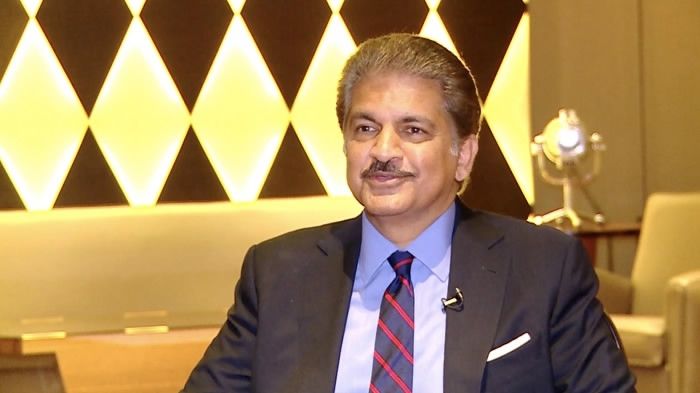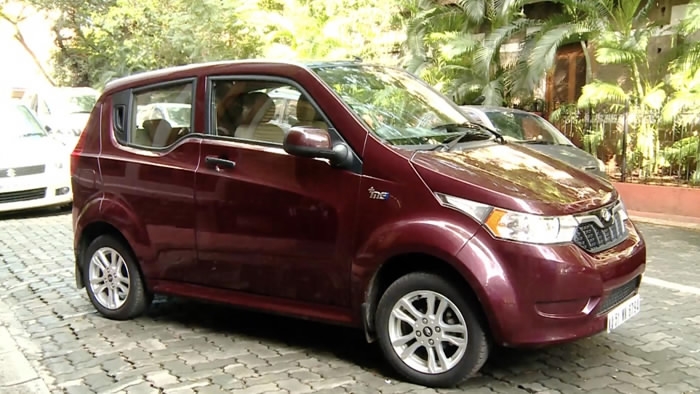
World
19:19, 25-Sep-2017
The Big Picture: India's electric car revolution
By Shweta Bajaj

India is changing gears, but it's not a normal change. It probably means going straight from first gear to fifth. In a surprise move, the Indian government in April announced that by 2030, India will only have electric cars. For a country that runs on fuel guzzling cars, it's an ambitious target.
Now, to imagine this happening in 14 years, it seems bordering on impossible. But whether the deadline will be met or not, the fact is that one of the largest countries in the world is on the path to eradicate fossil fuels in favor of electric vehicles.
Why is India doing this?
The impact it claims would be massive – reduction in its oil bill by 60 billion dollars and reduction in emissions by almost 40 percent. India has also been witnessing massive pollution in the last few years, which impacted various facets of its everyday life.
Migration to cleaner cars is just one way to avoid the catastrophic impact pollution could have on its environment and life in general. The Narendra Modi government will roll out a national policy for electric vehicles by the end of this year. However, the challenge will be to increase demand for electric vehicles in India by changing perception and providing infrastructure like charging stations without which the plan would not work.

Cars are polluting India at a breakneck speed. /CGTN Photo
Cars are polluting India at a breakneck speed. /CGTN Photo
Eye on the Future – Anand Mahindra
Anand Mahindra is a man with his eyes on the future. India's first electric car was launched in 2001 by a company called Reva. Mahindra bought the company and renamed it Mahindra Electric. Till date it is the only electric passenger car maker in India.
The electric vehicle market might be small in India, but in the near future it is expected to grow at a breakneck speed. Mahindra is at the forefront of the efforts being taken to make India ready for electric vehicles.
India sold three million passenger cars in the financial year 2016-2017, but in the same period it only sold 22,000 electric cars. The country's electric car revolution would require a massive push.
Mahindra, chairman of Mahindra Group, realizes this but is of the opinion that innovation will lead to a massive increase in demand anyway, with or without the government's push.

Anand Mahindra, chairman of Mahindra Group. /CGTN Photo
Anand Mahindra, chairman of Mahindra Group. /CGTN Photo
The idea that in the next 13 years India will only have electric cars gives him the first movers advantage.
Mahindra said, "I think It's time India got too ambitious. The problem with India has been that we have lacked ambition. So I am never going to fold anyone for coming up with the deadline that critics say is not reachable."
The numbers are low. Mahindra's company is able to manufacture 2,000 electric cars a month. This year it will increase the capacity to 5,000. But the company is doing a lot.
Mahindra's team has been participating in Formula-electric racing competitions. He considers investment in the racing part an investment in electric cars innovation. One day he hopes that this innovation and learning will bring the performance of electric cars at par with fossil fuel guzzling cars.
Mahindra has big plans to ramp up capacity for the growing Indian market. Millions of electric cars will have to be sold to make India free of fossil fuel passenger vehicles by 2030. He has also announced a plan to set up a new facility to make battery packs to power e-vehicles.
"Volumes are low at this point for a variety of reasons and other reasons like battery costs, price being high but the government has recently announced that they have a target, an aspiring target that by the year 2030 all cars will be electric cars. Now it's not important that that target is met but clearly that has changed the aspirations of car makers in India and everybody is going to make plans to make facilities to manufacture electric vehicles," Mahindra said.

A Mahindra & Mahindra electric car. /CGTN Photo
A Mahindra & Mahindra electric car. /CGTN Photo
Even as battery costs remain a hindrance to electric cars, rapid innovation is leading to a price reduction. Mahindra said this was one area where China and India could work together, going as far as saying that India's electric car revolution will be powered by China-made batteries. He added that the industry would grow without government-led subsidies.
Mahindra said, "I foresee that at some point in time with plummeting battery cost, increasing range, lower charging time…electric vehicles will be on parity with conventional engines as their price will be on parity and their range will be on parity."
He added, "At that point in time one doesn't really need a government to step in. Consumers will buy and the market itself would provide the charging stations that are required."
Burgeoning Indian market
India is all set to become the world's third largest car market by 2020 and the demand is only expected to rise in the country of 1.2 billion people. Many car companies, including Tesla, are now planning to enter the Indian car market to fill up a space that the massive electric car demand will create. Other companies are also looking at building electric cars for India.
But India is a price sensitive market. Other than cost, the performance of electric cars leaves much to be desired compared to fossil fuel cars.
It's exciting times in the Indian car market. The next few years will see a shift in car makers moving to manufacturing electric vehicles. Innovation though will be key for success without any government intervention.
4748km


SITEMAP
Copyright © 2018 CGTN. Beijing ICP prepared NO.16065310-3
Copyright © 2018 CGTN. Beijing ICP prepared NO.16065310-3